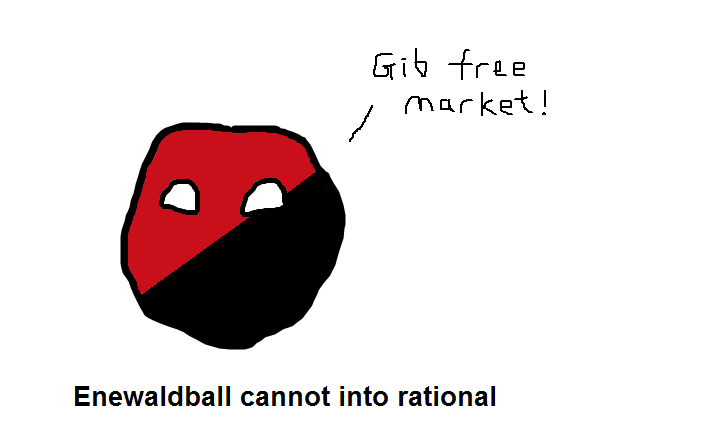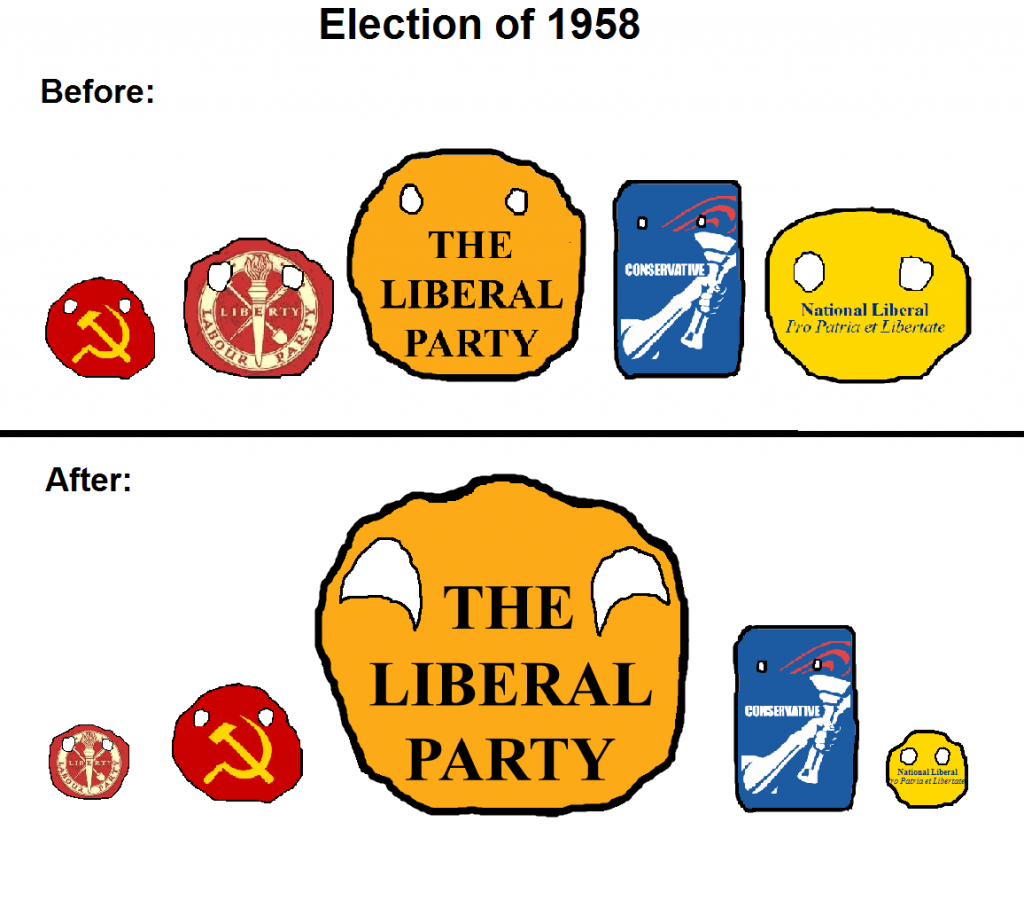The Westminster System - A British Interactive AAR
- Thread starter Tommy4ever
- Start date
-
We have updated our Community Code of Conduct. Please read through the new rules for the forum that are an integral part of Paradox Interactive’s User Agreement.
You are using an out of date browser. It may not display this or other websites correctly.
You should upgrade or use an alternative browser.
You should upgrade or use an alternative browser.
- Status
- Not open for further replies.
Last night of the elections and we still need votes! 13 and a half hours to go! Get to the polls!
I'm somewhat flattered and slightly insulted.
You still haven't explained why my understand of the words rationale and rational are wrong...
In short and simplified: Rationale means having a reason. Rational refers to the ability to come up with a good reasion. And rationality is being reasonable.
In short and simplified: Rationale means having a reason. Rational refers to the ability to come up with a good reasion. And rationality is being reasonable.
Nope. Rationale is being able to come up with a reason for something. Rational is making a decision which objectively makes logical sense based on all the facts.
For example: deciding to buy a potato at one shop instead of the other because it is cheaper in the first is a rational decision. Deciding to buy a potato at one shop just because the name of that shop "sounds nicer" than the name of the other shop is not rational but does have a rationale behind it.
I just wanting to tell all of my fellow countrymen that triscuit's are delicious.
Nope. Rationale is being able to come up with a reason for something. Rational is making a decision which objectively makes logical sense based on all the facts.
For example: deciding to buy a potato at one shop instead of the other because it is cheaper in the first is a rational decision. Deciding to buy a potato at one shop just because the name of that shop "sounds nicer" than the name of the other shop is not rational but does have a rationale behind it.
But it does have a rationale behind it, it is just might be unknown to an observer.
Maybe the other potato is imported, and the buyer decides to favour a homeland brand?
Maybe the other shopkeerer is his friend or family member?
Maybe he has bad memories of visiting the other shop?
Maybe he likes the shape of potato X over the shape of potato Y?
THERE IS A RATIONALE BEHIND EVERY DECISIONS THE HUMAN BRAIN MAKES.
And your own values and judgements, only known to yourself, that are in constant change; can only by known by your own mind. They might look like irrational decisions for outsiders that do not grasp your reasoning why you favour this potato over that one, but there is always a rationale behind every action!
Just because you think the decision is not rational, from your subjective point of view, does not make something 'irrational'. Irrationality is a subjective opinion!
Are we clear about human rationality?
But it does have a rationale behind it, it is just might be unknown to an observer.
Maybe the other potato is imported, and the buyer decides to favour a homeland brand?
Maybe the other shopkeerer is his friend or family member?
Maybe he has bad memories of visiting the other shop?
Maybe he likes the shape of potato X over the shape of potato Y?
THERE IS A RATIONALE BEHIND EVERY DECISIONS THE HUMAN BRAIN MAKES.
And your own values and judgements, only known to yourself, that are in constant change; can only by known by your own mind. They might look like irrational decisions for outsiders that do not grasp your reasoning why you favour this potato over that one, but there is always a rationale behind every action!
Just because you think the decision is not rational, from your subjective point of view, does not make something 'irrational'. Irrationality is a subjective opinion!
Are we clear about human rationality?
Yep. This is why is rational for someone to smoke while others may find it very irrational. We all value different things.
But it does have a rationale behind it, it is just might be unknown to an observer.
Maybe the other potato is imported, and the buyer decides to favour a homeland brand?
Maybe the other shopkeerer is his friend or family member?
Maybe he has bad memories of visiting the other shop?
Maybe he likes the shape of potato X over the shape of potato Y?
THERE IS A RATIONALE BEHIND EVERY DECISIONS THE HUMAN BRAIN MAKES.
And your own values and judgements, only known to yourself, that are in constant change; can only by known by your own mind. They might look like irrational decisions for outsiders that do not grasp your reasoning why you favour this potato over that one, but there is always a rationale behind every action!
Just because you think the decision is not rational, from your subjective point of view, does not make something 'irrational'. Irrationality is a subjective opinion!
Are we clear about human rationality?
All of those maybes are irrelevant because we are talking about the hypothetical situation which I described and the only factors in it are the ones which I described.
If you want another example, if you look at something like stock trading then a rational stockbroker would look at the information and buy and sell shares based on his best estimate as to what will make the most money. However, in practise, stockbrokers tend to follow the herd in terms of their buying and selling even when it objectively does not make sense to do so.
That's the point. Just because you have a rationale behind your actions does not mean that your actions are objectively rational. Hence why the free market is a bad idea - all the arguments in favour of a completely free market is that markets are rational and efficient and will produce optimum outcomes. In reality, however, it's well established that markets are not rational because the people who comprise the market frequently act irrationally (such as buying products above market price just because they're used to assuming that one particular supplier has the cheapest, same quality product without checking to see whether that is still the case).
What is rational and irrational is an objective evaluation of decisions based on examining all the variables involved and deciding what would logically be the optimum outcome and then comparing that to the decision actually made.
I don't want to continue this argument as I know it will get nowhere but you'll just have to accept that the standard definition of 'rational' is very different from "a decision having a rationale behind it".
Rational (adjective) based on or in accordance with reason or logic.
Last edited:
Meanwhile in politicalball land:
You live in the past
You live in the pastGet out of there and join us in the present.
Well I will once the next election is over
Well I will once the next election is over
Then it will still be the past
rabble rabble
We have had this discussion before. You use a definition that I don't think a single other person in this IAAR uses. That said, you are using that word wrong, I think you might need a new one.
We have had this discussion before. You use a definition that I don't think a single other person in this IAAR uses. That said, you are using that word wrong, I think you might need a new one.
According to what he is talking about it is 100% correct.
I think Enewald Ball should have Yellow instead of Red. His avatar is just the closest you could get to his preferred "anarchy" flag.
I think Enewald Ball should have Yellow instead of Red. His avatar is just the closest you could get to his preferred "anarchy" flag.
I'm happy to make that change if Enewald agrees.
All of those maybes are irrelevant because we are talking about the hypothetical situation which I described and the only factors in it are the ones which I described.
If you want another example, if you look at something like stock trading then a rational stockbroker would look at the information and buy and sell shares based on his best estimate as to what will make the most money. However, in practise, stockbrokers tend to follow the herd in terms of their buying and selling even when it objectively does not make sense to do so.
That's the point. Just because you have a rationale behind your actions does not mean that your actions are objectively rational. Hence why the free market is a bad idea - all the arguments in favour of a completely free market is that markets are rational and efficient and will produce optimum outcomes. In reality, however, it's well established that markets are not rational because the people who comprise the market frequently act irrationally (such as buying products above market price just because they're used to assuming that one particular supplier has the cheapest, same quality product without checking to see whether that is still the case).
What is rational and irrational is an objective evaluation of decisions based on examining all the variables involved and deciding what would logically be the optimum outcome and then comparing that to the decision actually made.
I don't want to continue this argument as I know it will get nowhere but you'll just have to accept that the standard definition of 'rational' is very different from "a decision having a rationale behind it".
Rational (adjective) based on or in accordance with reason or logic.
WOW so much wrong here. smh
WOW so much wrong here. smh
He is morally superior, and know better than us on everything since we are ignorant peasants! Don't question allmighty Antonine!
- Status
- Not open for further replies.



